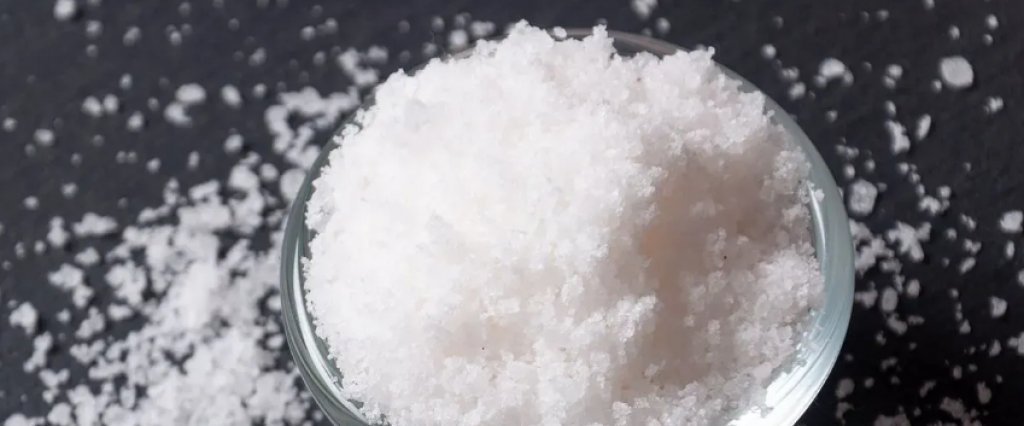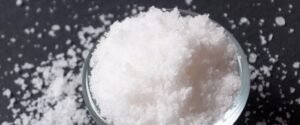A high-salt eating regimen smothered the development of growths in a mouse model of melanoma, clearly in light of an interaction between the gut microbiome and normal executioner cells.
In mice, an eating routine high in salt stifles cancer development—however just when gut microorganisms are there to animate invulnerable cells, a September 10 review in Science Advances reports. The discoveries bring up enticing issues about the job of diet and gut microorganisms in human tumors, and may highlight new roads for remedial turn of events.
While the review isn’t quick to associate a high-salt eating regimen to contracting growths, “[the authors] have shown a remarkable unthinking job of high salt initiated gut microbiome changes as the focal wonder behind their noticed enemy of malignancy impact,” composes Venkataswarup Tiriveedhi, a scholar at Tennessee State University who has concentrated on the impact of salt on disease movement yet was not engaged with the review, in an email to The Scientist.
Amit Awasthi, an immunologist with the Translational Health Science and Technology Institute in India and relating creator of the review, says he and his partners sought after this line of request in light of the fact that past research had connected high salt admission with immune system infections, recommending that expanded salt invigorates resistant cells. In the interim, growths are notable to fill in resistant suppressive conditions. Awasthi pondered with his group: “In the event that we put salt in the mice’s eating regimen, possibly [the insusceptible framework in] the growth climate becomes initiated,” stifling destructive development.
For sure, a 2019 Frontiers in Immunology study from an European group drove by Hasselt University immunologist Markus Kleinewietfeld revealed that high-salt eating regimens repressed cancer development in mice. At the point when Awasthi and his partners did comparative tests, embedding mice with B16F10 skin melanoma cells and afterward taking care of the growth relocate mice abstains from food with various salt levels, they got comparable outcomes: cancers filled more slow in mice who were taken care of a high-salt eating regimen.
That prompted what Awasthi calls an “conspicuous inquiry”: How does the safe framework react to dietary salt? To respond to that, the group took apart the growth destinations and tracked down that safe cells known as regular executioner (NK) cells were enhanced in the mice took care of the great salt eating regimen contrasted and mice took care of diets with typical or somewhat raised salt levels. At the point when the NK cells were taken out, the high-salt eating routine presently not prompted cancer relapse—an impact that wasn’t seen in the wake of draining both T and B cells.
To bore into why salt had this impact on NK cells, Awasthi and his associates examined the writing and discovered investigations revealing that high-salt weight control plans modify the gut microbiome, just as others that discovered the gut microbiome balances patients’ reaction to malignant growth immunotherapy. To test for a job of the occupant gut microbes in the impacts of a high-salt eating routine on disease development, the scientists gave the mice anti-infection agents prior to taking care of them the various eating regimens. Adequately sure, a high-salt eating regimen presently not stifled cancer development. However, that wasn’t all: when the group relocated waste material from mice took care of a high-salt eating regimen into microorganism free mice, they were amazed to find that cancers shrank, Awasthi reviews.
See “Does the Microbiome Help the Body Fight Cancer?”
The specialists checked out the variety of species in the mice’s gut and saw an expanded bounty of Bifidobacterium species in mice took care of a high-salt eating regimen. Besides, the growths of these mice showed a sixfold expansion in Bifidobacterium bounty contrasted and the cancers of mice on an ordinary eating routine. As indicated by Awasthi, that proposes “Bifidobacterium is spilling out from the gut and really arriving at the growth site,” reasonable the aftereffect of salt-actuated gut porousness.
In mice took care of an ordinary eating regimen, infusion of Bifidobacterium into growths prompted cancer relapse, an impact that vanished if the analysts eliminated the creatures’ NK cells, they announced. Awasthi says that may mean there’s a method to benefit from the cancer battling characteristics of a high-salt eating routine while staying away from the expected drawbacks, like immune system issues or hypertension: “we can supplant the salt with the Bifidobacterium.”
Kleinewietfeld says the new review is in accordance with his 2019 review and past work showing that salt can influence the gut microbiota. All things considered, he writes in an email to The Scientist, “The microbiome a piece of this paper appears to be a bit primer . . . what’s more, a few information are yet difficult to decipher with the data gave in the original copy.”
A confounding issue, composes Tiriveedhi, “is the double idea of the effect of salt on strong growths.” While salt might smother malignancy by upgrading antitumor safe reactions, Tiriveedhi focuses to considers by his gathering that discover salt can likewise incite disease movement and multiplication. As indicated by Tiriveedhi, these outcomes “propose a transient job of salt on malignant growth movement.” temporarily, salt may trigger anticancer components, he says, however “over a drawn out ongoing timeframe, salt may switch sides and apply a supportive of disease impact.”
Indeed, even with such inquiries extraordinary, Awasthi says that his gathering’s outcomes could give the premise of another type of malignancy treatment, and the group is as of now arranging clinical preliminaries as a team with oncologists. Regardless of whether those preliminaries will approve the antitumor exercises of salt or Bifidobacterium stays not yet clear.
“[I]t’s an interesting field of exploration, however still in its earliest stages,” composes Kleinewietfeld, adding “more investigations [are] expected to comprehend the intricate cooperations of nourishment, microbiome and invulnerability with regards to malignancy. Consequently, future investigations will show if new discoveries could without a doubt prompt novel treatment alternatives for patients.”


